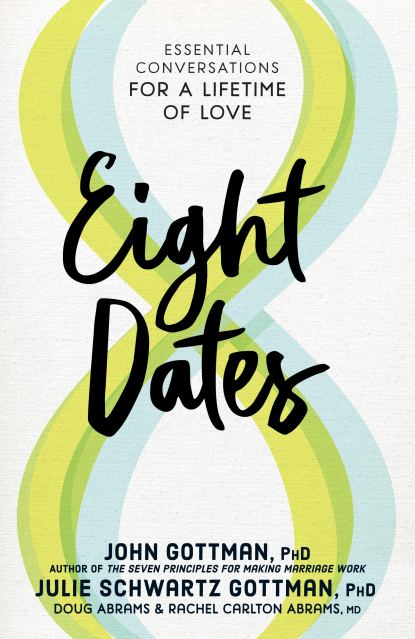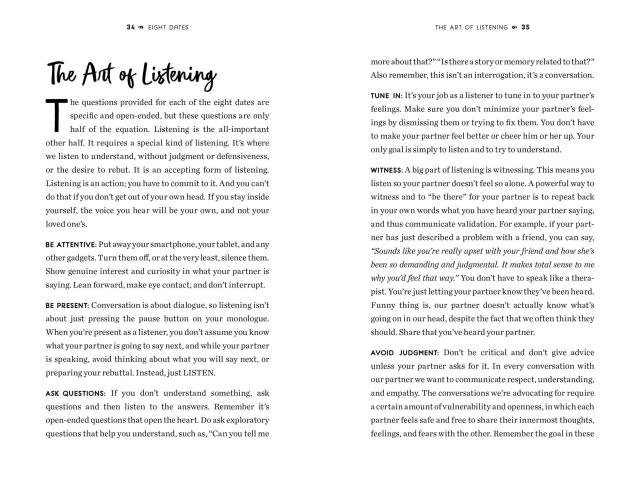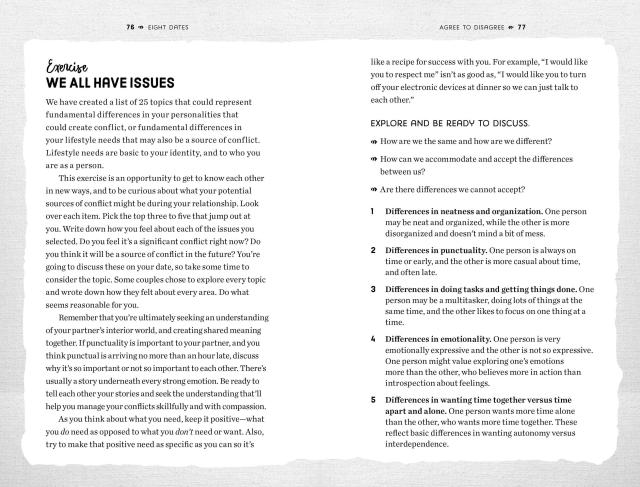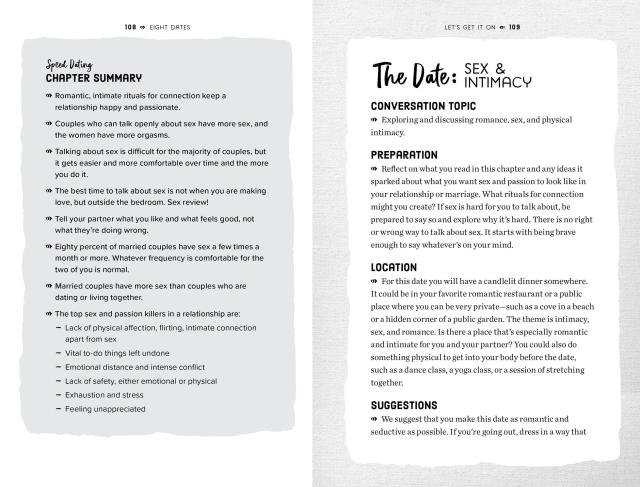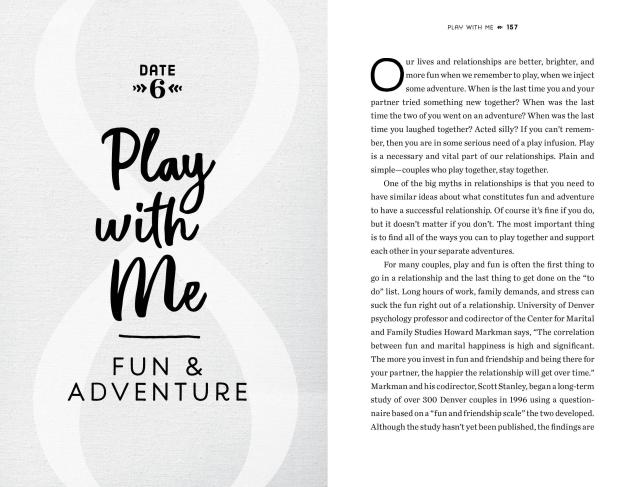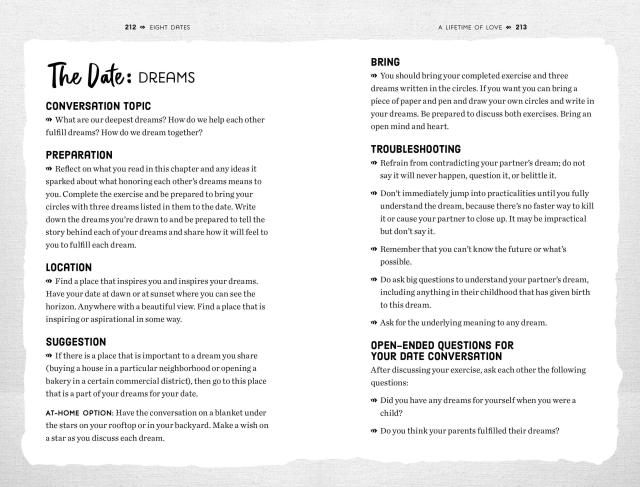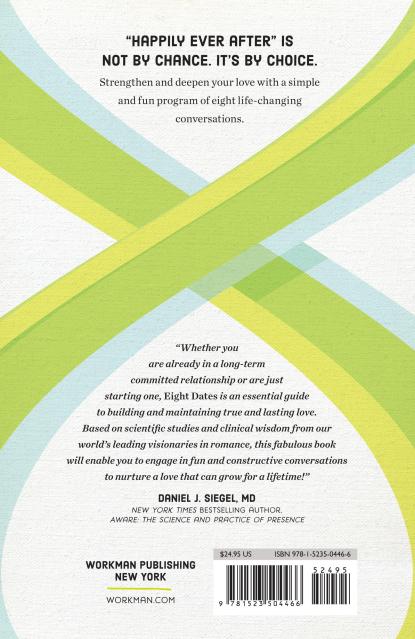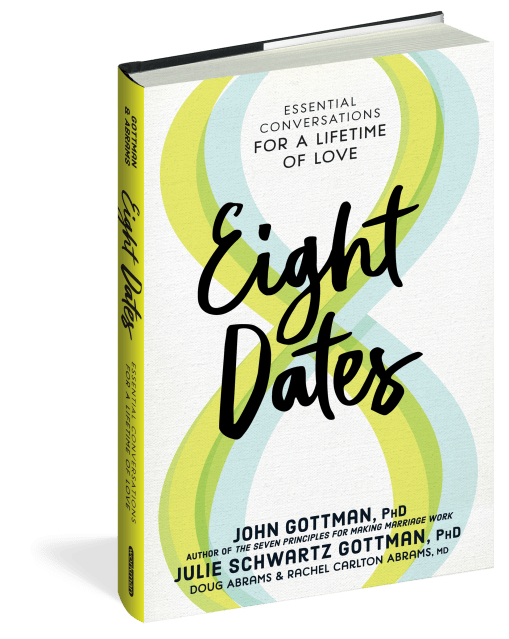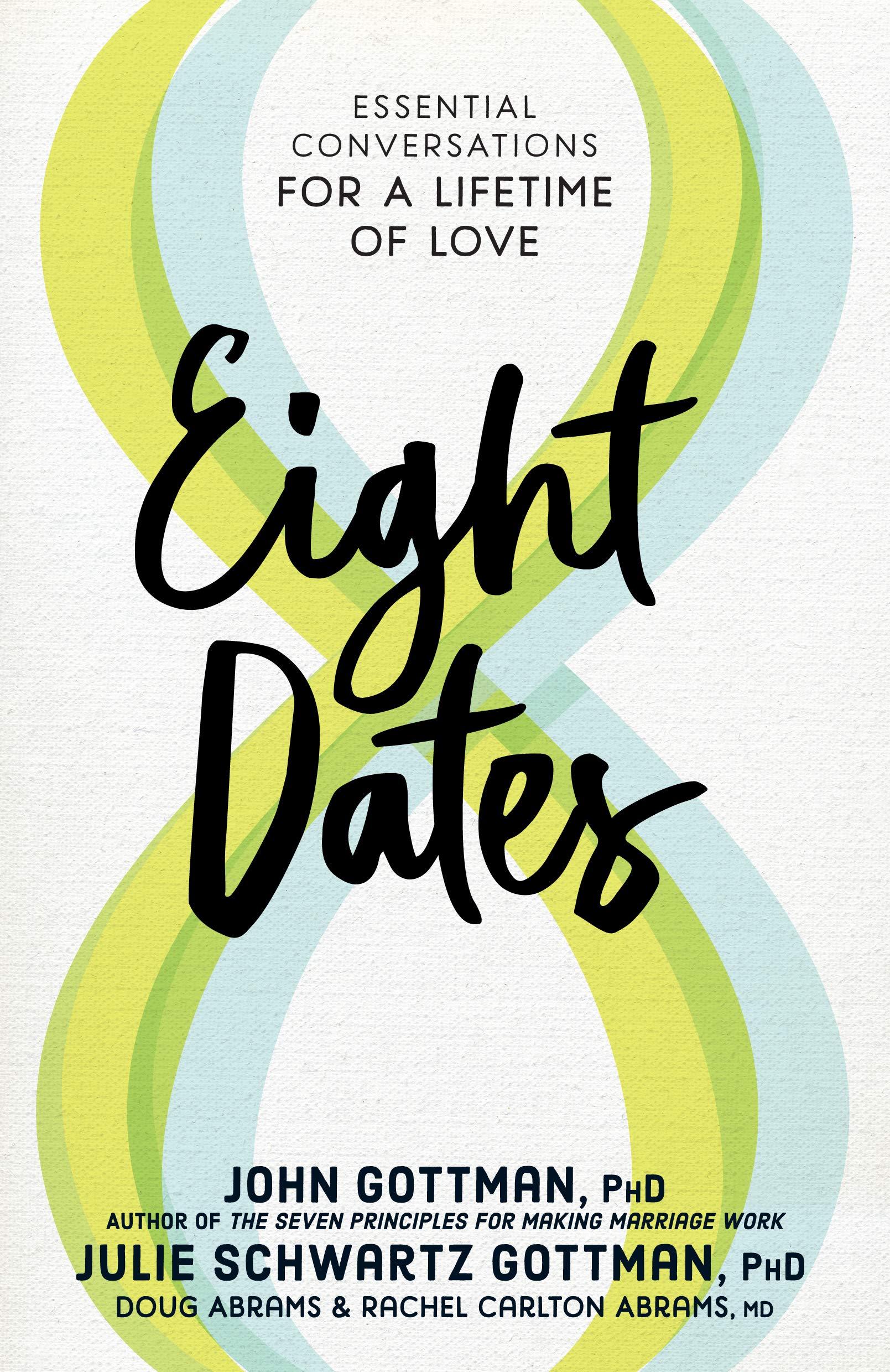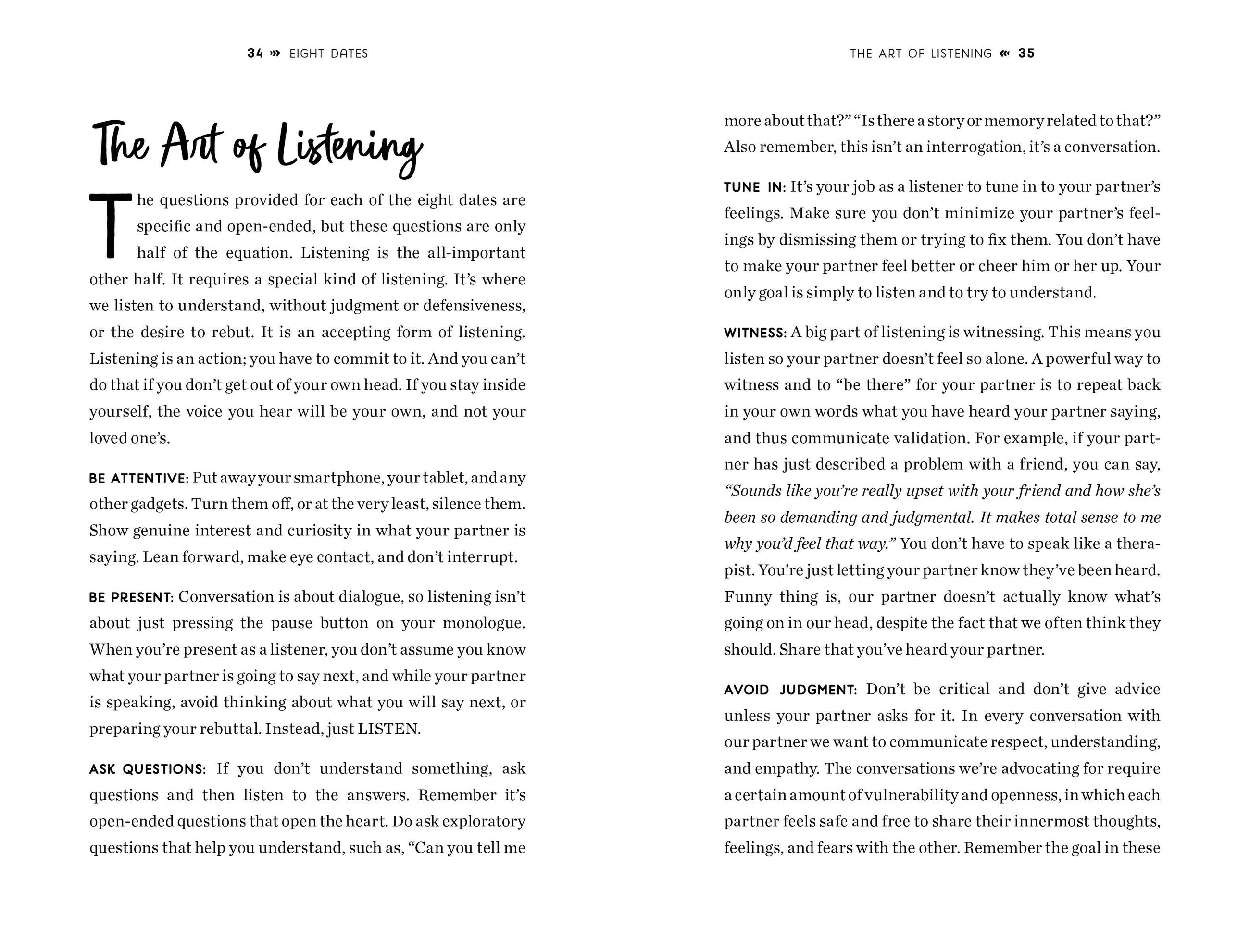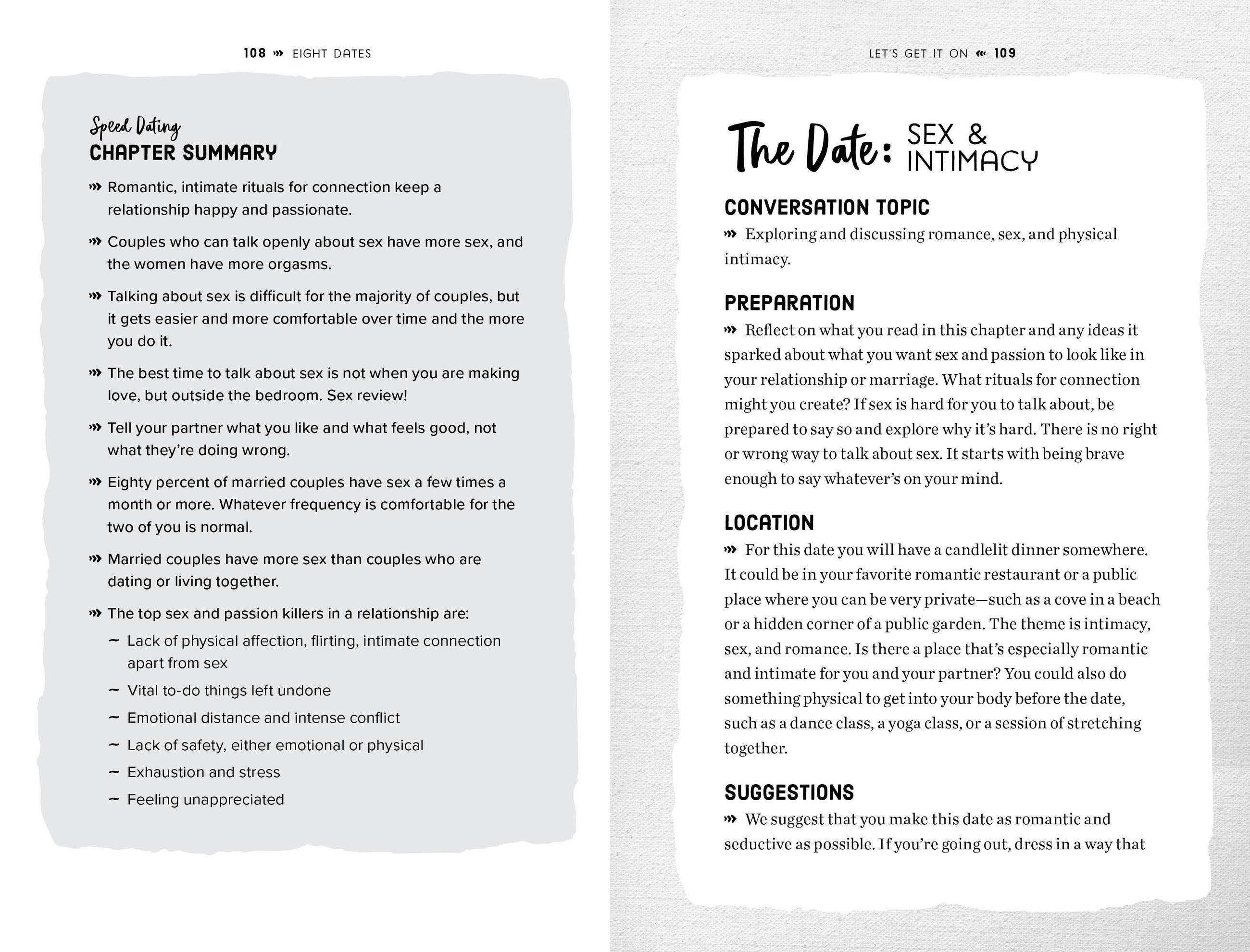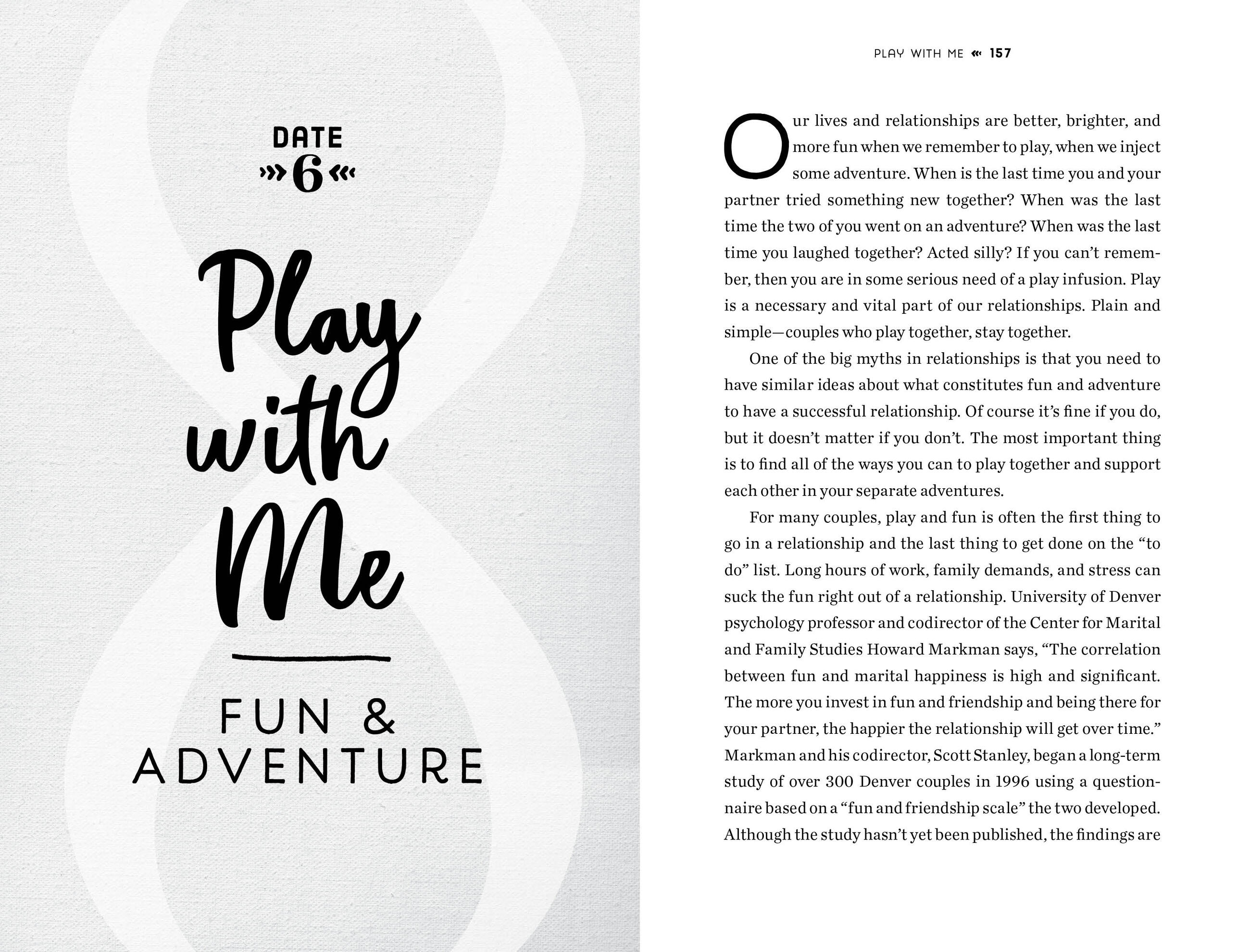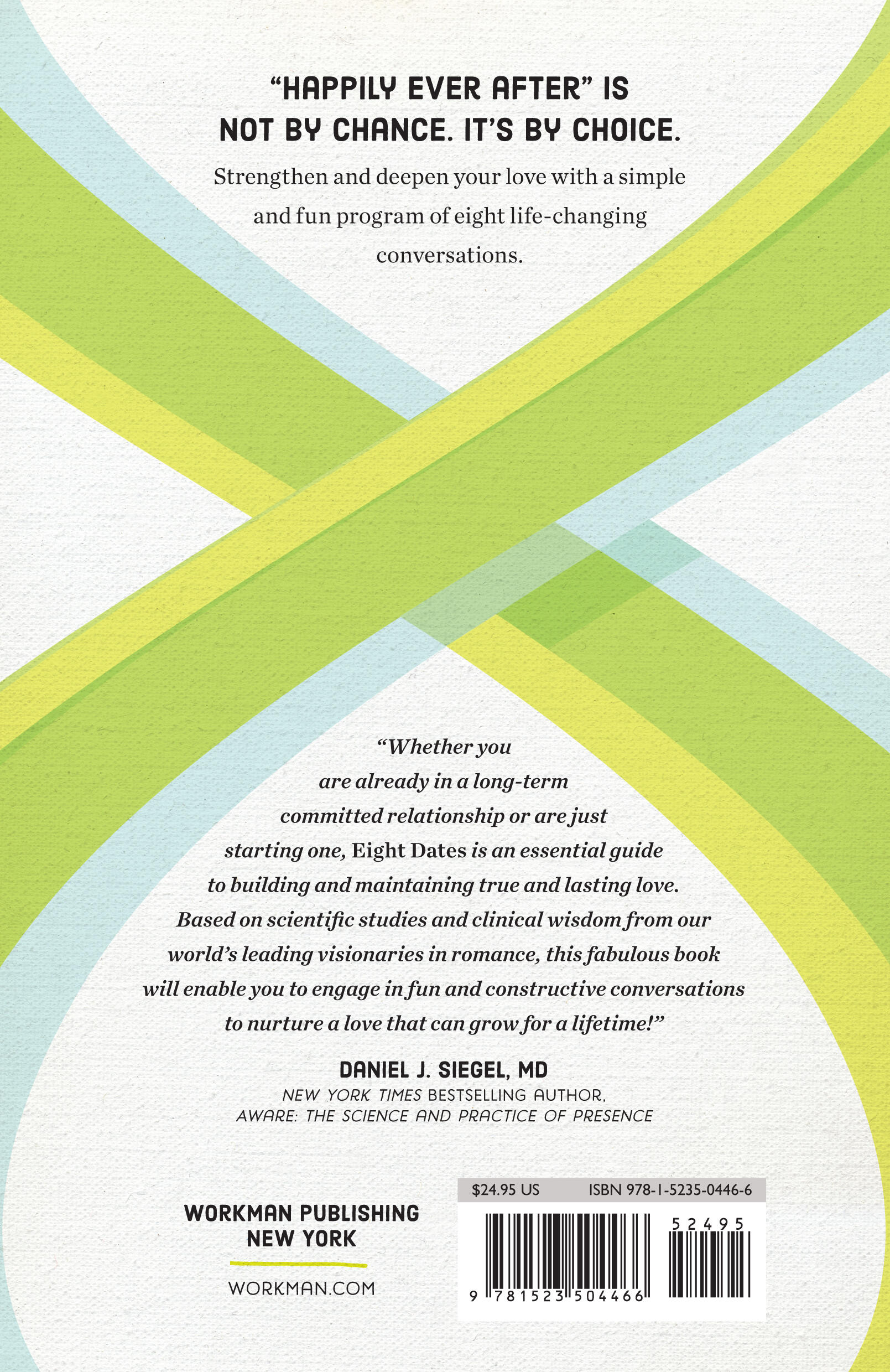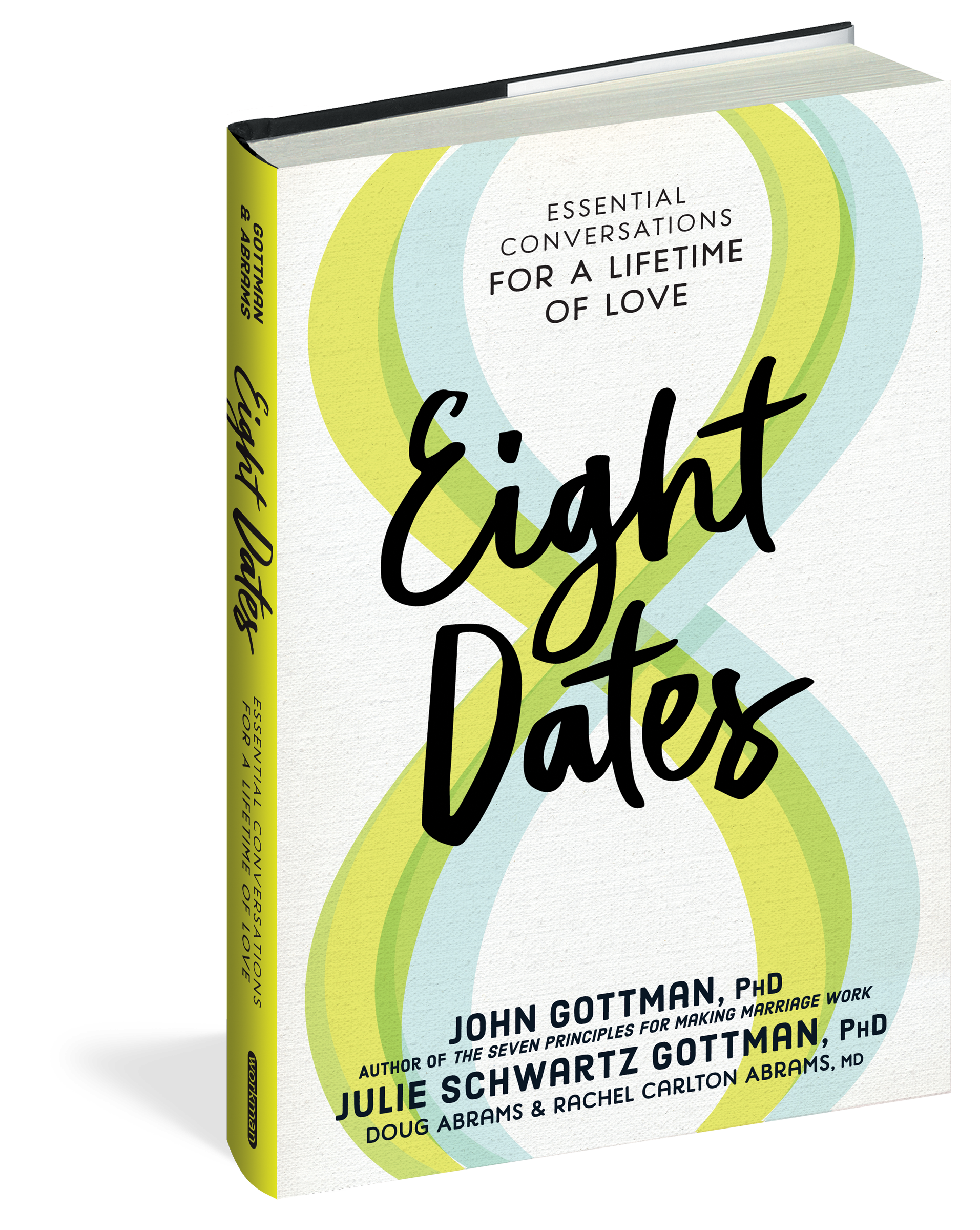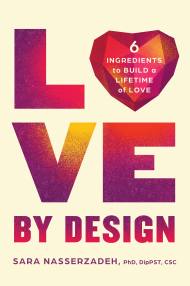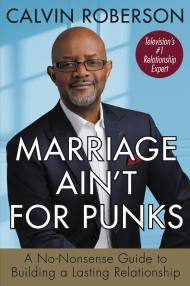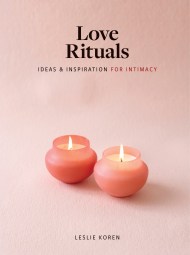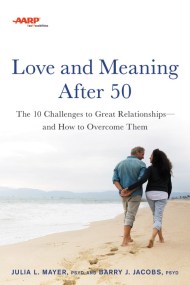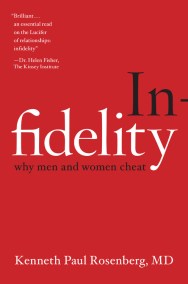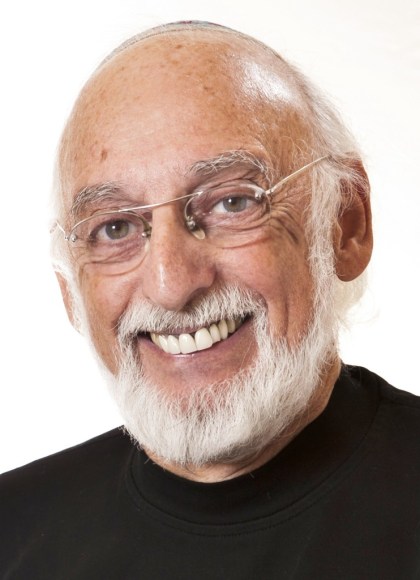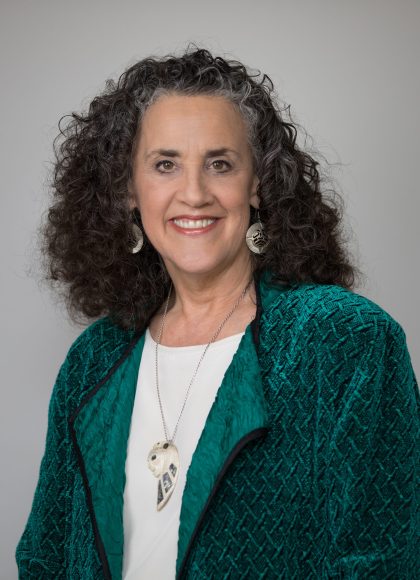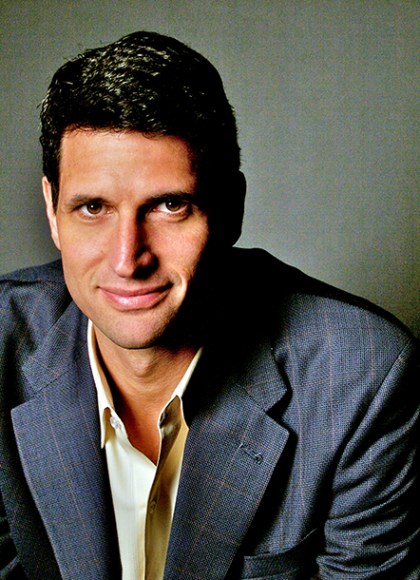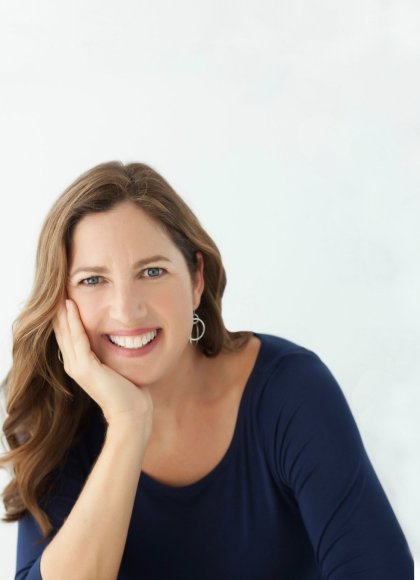Promotion
Use code MOM24 for 20% off site wide + free shipping over $45
Eight Dates
Essential Conversations for a Lifetime of Love
Contributors
By Julie Schwartz Gottman, PhD
By Doug Abrams
Formats and Prices
Price
$27.00Price
$34.00 CADFormat
Format:
- Hardcover $27.00 $34.00 CAD
- ebook $13.99 $17.99 CAD
This item is a preorder. Your payment method will be charged immediately, and the product is expected to ship on or around February 5, 2019. This date is subject to change due to shipping delays beyond our control.
Also available from:
Strengthen and deepen your love with a fun, ingenious program of eight life-changing conversations—on essential topics such as money, sex, and trust—from two of the world’s leading marriage researchers and clinicians.
Navigating the challenges of long-term commitment takes effort—and it just got simpler, with this empowering, step-by-step guide to communicating about the things that matter most to you and your partner. Drawing on forty years of research from their world-famous Love Lab, Dr. John Gottman and Dr. Julie Schwartz Gottman invite couples on eight fun, easy, and profoundly rewarding dates, each one focused on a make-or-break issue: trust, conflict, sex, money, family, adventure, spirituality, and dreams.
Interactive activities and prompts provide motivation to stay open, stay curious, and, most of all, stay talking to each other. And the range—from the four skills you need for intimate conversation (including Put Into Words What You Are Feeling) to tips on being honest about your needs, while also validating your partner’s own emotions—will resonate, whether you’re newly together or a longtime couple looking to fortify your bond. You will discover (or rediscover) your partner like never before—and be able to realize your hopes and dreams for the love you desire and deserve.
Genre:
-
“[A]n instant hit… If you’ve been married forever and think this book isn’t for you, (dates??), think again.” —Oprah.com
“Whether you are already in a long term committed relationship or are just starting one, Eight Dates is an essential guide to building and maintaining true and lasting love. Based on decades of scientific studies and clinical wisdom from our world’s leading visionaries in romance, this fabulous book will enable you to engage in fun and constructive conversations to nurture a love that can grow for a lifetime!” —Daniel J. Siegel, MD, New York Times bestselling author, Aware: The Science and Practice of Presence
"Brilliant" —The Chicago Tribune -
2019 Nautilus Book Award -Gold in the Communications Relationships category2019 Nautilus Book Award
- On Sale
- Feb 5, 2019
- Page Count
- 224 pages
- Publisher
- Workman Publishing Company
- ISBN-13
- 9781523504466
